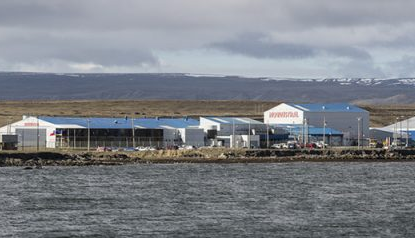
Features
Business Management
Sustainability
Nova Austral commits to BAP certification, opens new hatchery
October 8, 2020 By Matt Jones
 Nova Austral's new hatchery in Tierra del Fuego (Photo: Nova Austral)
Nova Austral's new hatchery in Tierra del Fuego (Photo: Nova Austral) Following negative publicity from a 2019 lawsuit that led to criminal charges due to false mortality reporting, Chilean salmon producer Nova Austral appears to be on the mend, committing to certify all of its farms, including a new hatchery in Tierra del Fuego, under the Best Aquaculture Practices (BAP) program.
As of last July, one of its farms, the Arecena 19 salmon farm had achieved BAP certification. The company aims to certify all of its remaining farm operations by December 2020.
“We are gratified with this certification, as it is the outcome of the efforts and hard work that the company has been doing since last year to strengthen and rebuild Nova Austral in terms of sustainability, environmental responsibility and good practices,” said new Nova Austral CEO Nicolás Larco in a press release.
Nova Austral director of sales Alex Malaguti said the goal is to have the new hatchery in Tierra del Fuego BAP certified before the end of 2020. He believes that the hatchery already follows all the necessary requirements as part of their standard operation practices.
“We are also engaged with the Aquaculture Stewardship Council (ASC) in order to re-certify all our operations by December 2020,” said Malaguti. “Our company’s mission is to be among the most sustainable salmon producer in the world. BAP and ASC are must-haves in order to be globally recognized as such.”
The new hatchery is operational and Nova Austral has transitioned to only using smolt from that facility for the company’s grow-out operations. The 18,000-sq.m. facility was built by Billund Aquaculture and has a smolt capacity of 12 million. The hatchery is strategically located near a seaside cliff, which allows the use of gravity instead of pumps to push the smolt out to well-boats, decreasing stress and possible injuries.
“We intentionally located the hatchery in the Antarctic region of Chile, in order to create a bio-security zone for all our salmon operations,” said Malaguti. “Our farms and now our hatchery are completely alone and away from large cities and human activity. It is the most remote and isolated hatchery in the southern hemisphere.”
In order to further enhance bio-isolation, the company has prohibited the use of outside vessels to travel to and from the farms or hatchery – only vessels native to the islands are allowed to navigate within a specified zone.
“The location of our new hatchery also allows us to transfer smolt in less than eight hours to our sea farm site,” said Malaguti. “This is amazing for the wellbeing of the animals. I believe all other producers in South America have at least a one- to two-day transport time between their hatcheries and farm site.”
Malaguti said that these efforts are part of the company’s sustainability mission, which includes a commitment to never use antibiotics at any stage of fish production.
The criminal charges against Nova Austral in 2019 stemmed from the company’s false reporting of fish mortality numbers and resulted in fines amounting to CLP 150 million (USD 190,200). Last June, Chile’s Council for the Defense of the State also filed a criminal lawsuit against one current and four former executives of the company.
Print this page





